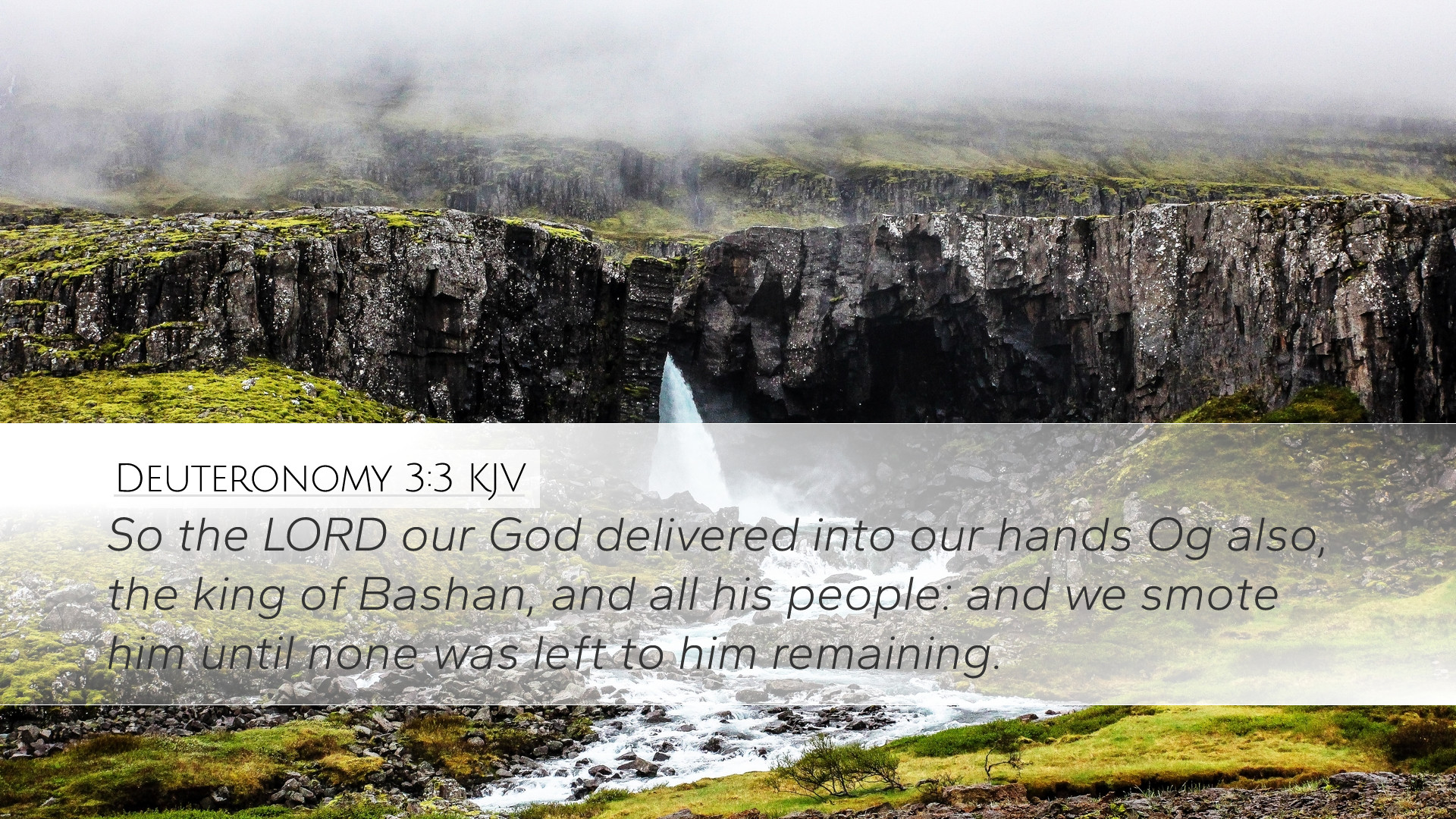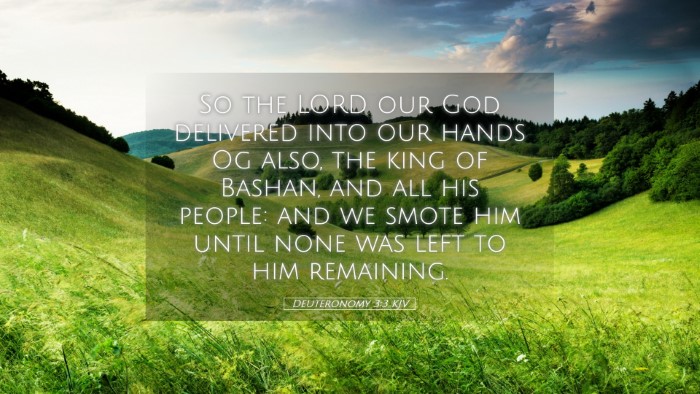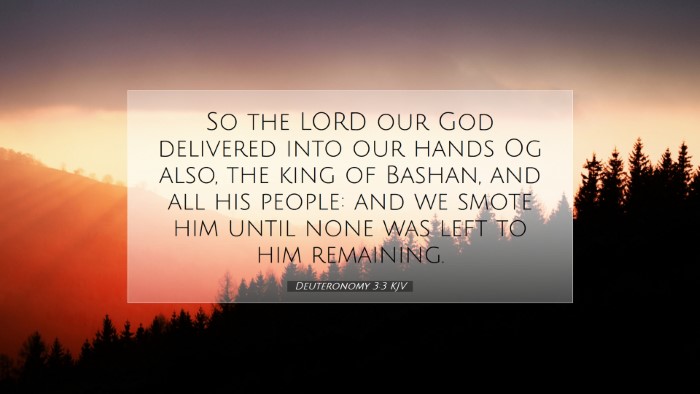Commentary on Deuteronomy 3:3
Deuteronomy 3:3 reads: “So the Lord our God delivered into our hands Og also, the king of Bashan, and all his people: and we smote him until none was left to him remaining.”
Introduction
This verse highlights a significant moment in Israel’s history, demonstrating God's providence in their conquest of the lands east of the Jordan River. The victory over Og, king of Bashan, serves as a testament to God's power and a reminder of the faithfulness of His promises to Israel.
Context and Historical Background
In the broader narrative of Deuteronomy, Moses recounts Israel's journey and the victories granted them by God as they approach the Promised Land. The defeat of Og signifies not just a military success but also the divine fulfillment of God's ongoing covenant relationship with Israel.
- Og's Significance: Known as a formidable giant, Og is described in ancient tradition as having an immense stature, symbolizing the obstacles Israel faced as they sought to establish themselves in Canaan.
- God's Promises: God's deliverance of Og reflects His promise to give Israel victory over their enemies, bolstering their confidence as they prepare to cross the Jordan.
Theological Insights
This verse underscores several theological themes essential for understanding God’s character and His relationship with His people.
- Divine Sovereignty: The verse illustrates God's sovereignty over nations and kings. As seen through His deliverance of Og, God orchestrates events according to His will.
- God as Protector: The defeat of Og reinforces the notion of God as a protector and warrior on behalf of Israel. He fights their battles, ensuring their safety and success.
Commentary Insights
Matthew Henry
Matthew Henry emphasizes that the defeat of Og represents God's judgment upon those who oppose Him and His people. He articulates that every victory is not only a personal achievement for Israel but a demonstration of God’s might over the forces of corruption and idolatry.
Albert Barnes
Albert Barnes provides practical observation, noting that Og's defeat serves as an encouragement to Israel. He points out that remembrance of past victories fuels faith in God’s continuing provision, promoting perseverance amid future challenges.
Adam Clarke
Adam Clarke elaborates on the characteristics of Og and the strategic implications of Israel's military engagements. Clarke underscores the theological lessons drawn from the text, calling attention to the importance of total obedience to God’s directive in warfare. He suggests that this totality symbolizes a necessary spiritual completeness in the life of believers.
Practical Applications
The implications of Deuteronomy 3:3 reach modern readers in various ways:
- Faith in God's Deliverance: Believers are encouraged to trust in God's ability to deliver them from seemingly insurmountable problems.
- Victory Through Obedience: The assurance of victory is linked to the obedience and faithfulness of God’s people, reminding practitioners that their spiritual battles require reliance on God’s strength.
- Recall of God's Faithfulness: Regular reflection on God’s past provisions can serve to strengthen faith and prepare believers for future trials.
Conclusion
Deuteronomy 3:3 serves as a powerful reminder of God’s sovereignty and faithfulness. Both a historical account and a theological declaration, it encourages believers today to remember God’s past victories in their lives, lean on His strength, and trust in His providence as they confront their own ‘giants’.


